
Cha-CHING!
I love the sound of money comin’ my way. Don’t you?!
Every once in a while we really hit the jackpot and a big check comes in from some gig we’ve done in the past that blows most of the others away.
That happened to me this week, so naturally… a new piece of studio equipment is live on my mind! LoL
As I prepared for the purchase this week, I thought I’d share with those of you who don’t do this too often, exactly how to buy music gear.
It’s a fine art to some of us, and its techniques? They hold some real advantages.
Don the Right Superpower!
Ever listen to one of your favorite albums or artists and think, “Man! That sounds so good… they must have music superpowers or something!!”
Well, most of the time, that’s kind of true! It’s only after spending a good amount of time recording music again and again, and trying out gear time after time with myriad settings, that you take on demigod status behind the mixing console.

But it’s also true that the right, specific piece of professional gear WILL improve your sound if all you’ve had up to this point is semi-professional equipment.
I’ll never forget the first time I plugged my AT4050 mic into an Avalon preamp. DUDE!!! It was like I’d never really heard the mic before! At least not that good!!
Best question to ask yourself before any gear purchase is this:
“What is the weakest link in my music chain??”
The answer to that is what you should be spending your money on.
Got a great guitar, but your amp is second-rate?? You know what to do.
Using a top-notch microphone, but running it through a cheap interface?? Time to cut the fluff.
Bought a killer new DW drum kit, but have cymbals that sound like trash can lids? ALL of them??!
Uh, yea… I think you can guess what I’m going to say. Lol
Do a little studio self-introspection before you blow your wad. Then go for the superpower unit that will make you the hero of the airwaves!
Or don’t. I mean… it’s only your reputation on the line, right? 😉
That Sock Under the Mattress…
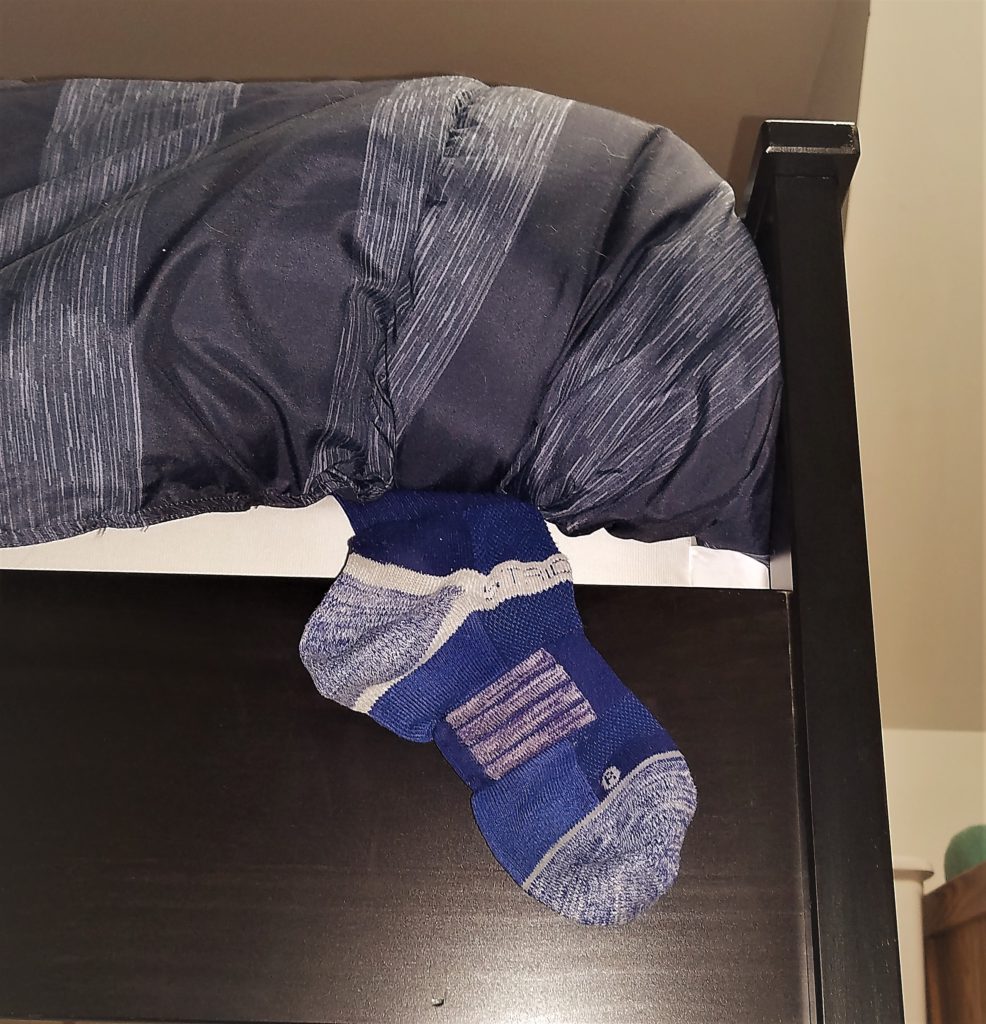
Whether you keep your money in a bank, Credit Union, old sock, or even under your undies in a drawer somewhere, what really matters when it comes to buying gear is SAVING for what you really NEED.
At any given time of your musical life, you’re going to be in the market for some piece of gear. But learning how to prioritize what to buy next is important.
Take my current situation as an example: I’ve got a lot of great, expensive gear that I record with currently.
I can’t really say I have any “weak spots”, but there ARE some areas where I can certainly improve equipment to an even higher professional level.
So, when those major funds dropped in my lap this past week, I knew exactly where I wanted to funnel some of it…

… a new mic OR a new mic preamp!!
The ones I have now all cost just under a thousand bucks. That means, turn improve my sound, I’m going to have to spend MORE than a thousand bucks.
Now, that’s not always the case; more expensive does not always mean better.
But for the units I’m looking at, it definitely DOES mean that.
To prepare for that purchase, I’ve stashed away $1,500 in one of my accounts that is used only for music gear.
Setting your upper limit of how much you’ll spend is important. At least, it is if you want to live a balanced, responsible lifestyle!
Yea, I’ve known other musicians who lost there apartment from buying a new instrument. I’d just rather not be that guy!! Lol
Remember too, but you don’t always have to have the best equipment. The gear in my studio has gradually gotten better over time. That’s because I’ve spent more only as I’ve earned more.
When I buy new gear, I also sell off old gear much of the time, since I know I won’t be needing it anymore. This is also a good way to keep costs down in the long run.
So yeah, Benjamin Franklin all those wise guys… they know what they’re talking about.

Take the time to SAVE money for the big expenditures, instead of spending it all as soon as you get it on gear that’s not as good.
You’ll thank yourself in the long run… and so will your clients, and employers!!
“Plays Nice With Others… “
There’s another crucial bit of analysis you should do whenever you’re thinking of adding to your Pro Audio arsenal, and that is…

… check for compatibility issues! In other words, will what you buy play nice, like superhero children, with what you already have.
Anyone that has ever dealt with computer DAW software probably has had some experience with other hardware pieces NOT working with it.
Sometimes this is based on how old the computer is.
Sometimes it’s based on how old the software is.
Sometimes it’s based on… God knows what! They just don’t like each other!!!
Few things are more disappointing than spending big bucks I’m gear that ends up not being compatible with what you already own.
I’ve been there. It SUCKS.
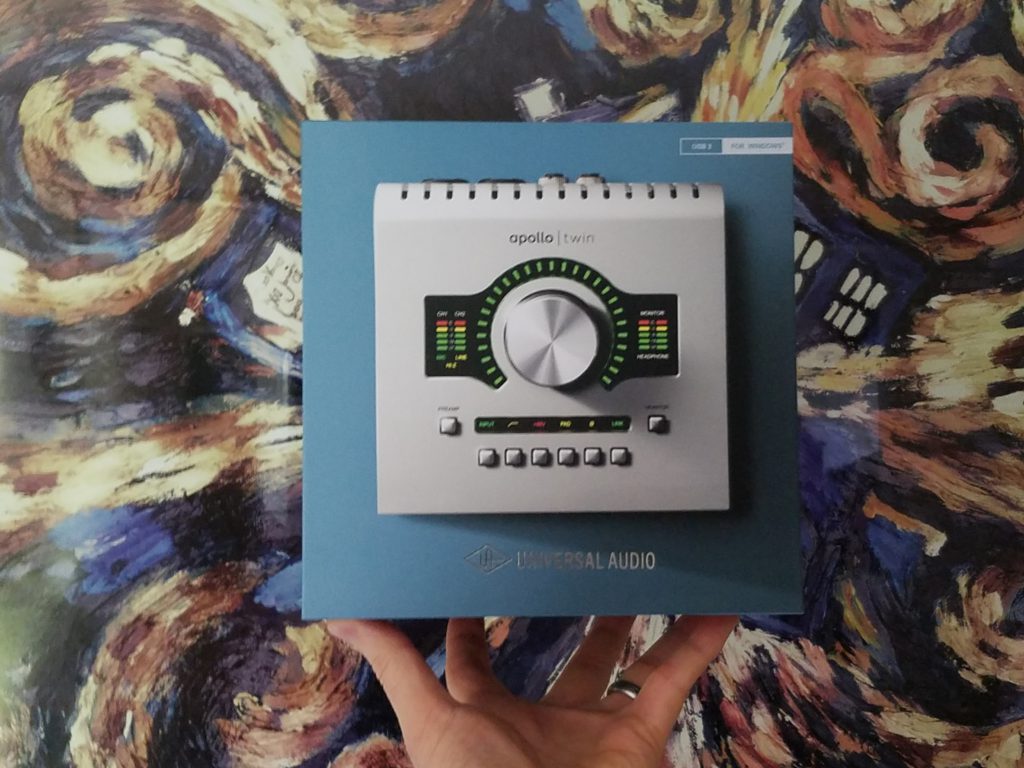
In fact, when I first bought my Apollo Twin interface (see pick to the left) I got it home only to find out that it would not work.
Why? Because, even though I had two USB 3 ports on my computer which UA said I needed ( I had checked), MY USB 3 ports…
… (are you ready for this?)…
… were the “old kind”. Now, there had been no mention of “types” of USB 3 ports on any website or forum, including UA. Everybody from my sales rep to the service techs thought this should work.
It was only when I sent the head service tech at UA a Belarc Advisor analysis of my computer that he was able to locate why I was having issues.
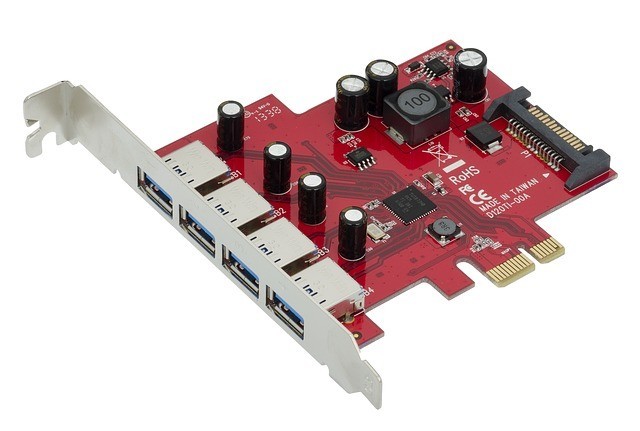
Guess what I had to do? I had to buy, and install, a brand new USB 3 port card into my computer.
After that, problem solved.
So, yeah, even if you do your due diligence and verify all compatibility issues, you STILL might get caught in the cross hairs of two gear thugs with mechanized vendettas!
But most of the time you won’t. Do yourself a favor: make sure anything you want to buy will play nice with what you have.
If not, hey… there’s lots of playgrounds in the world. 😉
Do Your Legwork
No, I’m not talking about squats and lifts (tho’ those are good for you). I mean put in the requisite research to know what the best piece of gear is for what you need.
Let’s face it: there’re enough variations of music equipment out there to make your drum head spin! So if you don’t do a little investigation up front, you may end up buying something you wish you hadn’t, either because it’s not the right fit, or because there was something better… for less!
Here are the references I consult before I buy every major piece of gear:

- Online forums
- Online reviews
- Manufacturer websites
- Pro Audio magazines
- Online blogs
- Personal sales reps
I use every single one of these just about every time I buy something substantial for the studio. No joke. I demand the very best bang for my buck, and so should you.
So already this week, next to each one of those references listed, concerning my new mic or preamp.
My conversation with Jeff Green, my consultant at Sweetwater sound, was the most enlightening. I keep up on the latest music gear pretty well for this website obviously, but Jeff gave me a couple ideas I had not heard of.
More options?? That’s always a good thing.
So thanks to his insightful recommendations, I now have even more machinery to research, that will all lead to me accomplishing even higher professional music goals.
Doing your homework has never brought better rewards!!
Stick to Your Price Guns… But Don’t Shoot!
This is something that’s not talked about often today in our evolving high-tech world: the role of the audio sales professional.
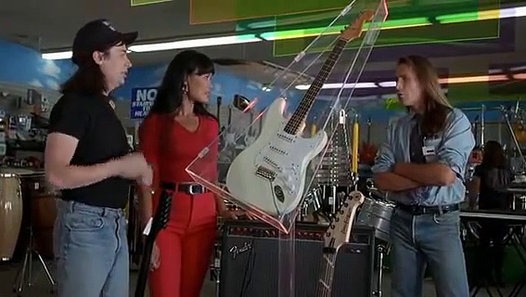
I’ve worked in the market of pro audio retail (tho’ I never got filmed in “Wayne’s World”!), so I’ve been at the other end of what I’m about to say, and it’s this:
If you take up a ton of time with a sales professional, don’t go give your sale away to some other store or online site just to save a few bucks.
If you did all your research yourself, and didn’t hog anyone’s day to get the insights you needed, than fine – buy your gear anywhere.
But if you have long discussions with a sales professional at a music retailer, either over the phone or in person at their store, have a little respect for them and how hard they worked for you.

Remember, most of these people still work on a commission basis. They don’t get paid unless you buy from them. So if they’ve freely given their informed opinion to you, over a long period of time and/or several visits by you, and done most of the research FOR you…
… have a heart, will ya? Tell ’em the best price you found (that will take some diligence on your part), and give them the chance to match it or come near it.
For me personally, I usually say a difference of “less than fifty bucks” is acceptable if I’ve barraged the sales person with questions.
You’ll have to make your own determination of what’s acceptable to you. I’m just saying… play fair. If a representative has worked hard to earn your business, at least give them the chance.
I mean, they’re probably musicians too. Share the love, my brothers and sisters… SHARE the LOVE!!
Pull That Trigger… on GEAR!!
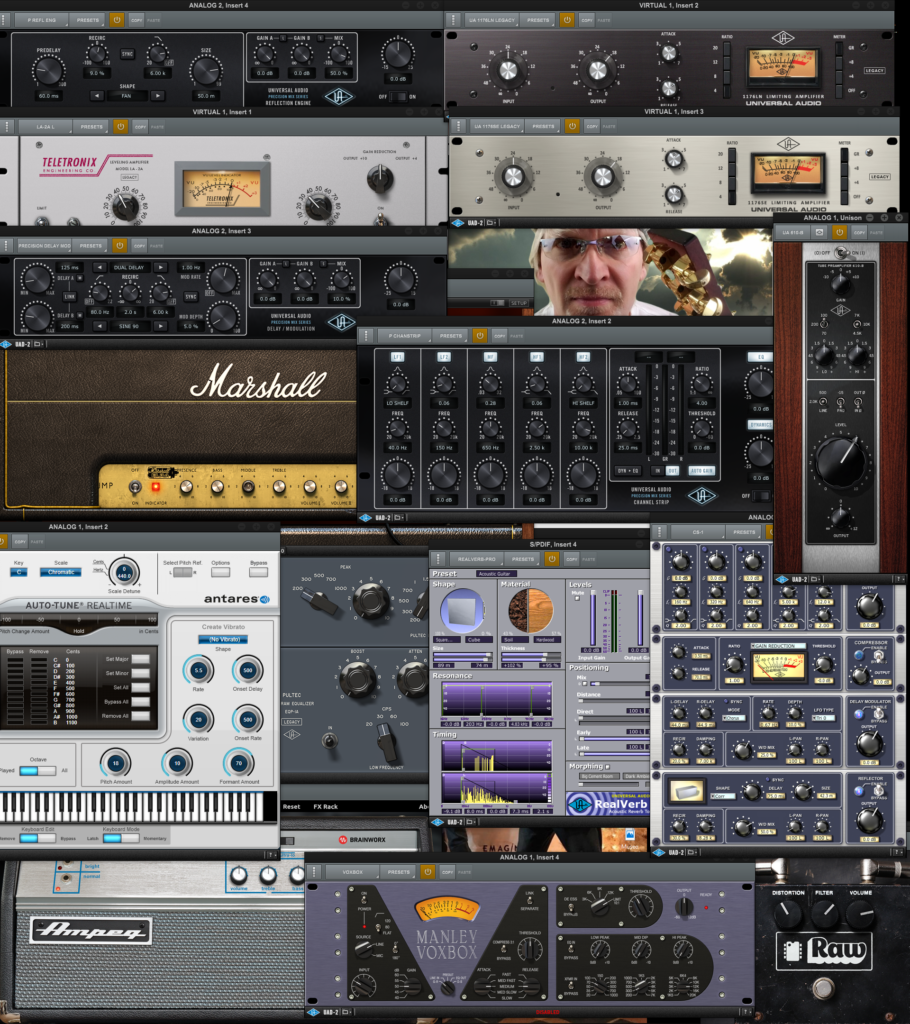
After you’ve done all the things listed above, you’re in the perfect position to get a great deal on pro audio equipment that will really up your game, taking not only your music, but your CAREER up to another level.
I did this when I got my Apollo Twin… knowing it was going to come with a TON of truly usable, excellent FREE plugins. LOVED that!!
So, yea… prep for success when you buy for your music. It’s what I do every time. Even… right now, in fact! 😉
Any other things you can think of that could make buying music gear easier for G.A.S. sufferers and trembling players and engineers??
Let us know in the Comments, and if you’ve found any of these things helpful in a recent purchase you’ve made, tell us about that too.

We need more of these stories to tell around the campfire.
When we stop playing guitar, that is.
Then again… I don’t think we ever do, do we??!! LOL
Now, go… make… sounds!!
Teaj
